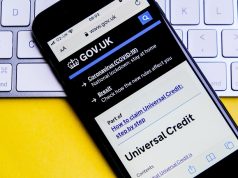One major advantage of contracting through a limited company it that you are able to offset certain business expenses against the company’s taxable profits. This guide outlines some of the expenses that are tax deductible for a limited company, this is not an exhaustive list, and there are many other expenses your company may claim.
The key rule when considering expenses is that expenses must be ‘wholly and exclusively for the purpose of business’. If an expense is claimed and later deemed non-allowable by HMRC, you would be required to return the cost to your company. Your accountant, with a full picture of your company’s trading and circumstances will be able to advise you on individual items. You should always retain a digital copy of the invoice/receipt, both to help your accountant in completing your accounts and so that you are able to prove that the expense was occurred, in the event of an audit.
Allowable Expenses:
Travel – If you incur expenses travelling to client sites you can claim this expense from your company, providing the location is temporary. One standard definition of a temporary workplace is that you are based there for less than 24 months. Claims for travel expenses can include tickets for public transport, flights, parking (not fines) and mileage.
You cannot claim for fuel costs, but can claim a mileage rate (known as Standard Rate Mileage or SRM) which incorporates fuel, running costs (tax insurance etc. and wear and tear) for business travel in your personal vehicle.
| First 10,000 miles per tax year | Miles in excess of 10,000 | |
| Car | 45p per mile | 25p per mile |
| Motorbike | 24p per mile | 24p per mile |
| Cycle | 20p per mile | 20p per mile |
Subsistence – If your contract is temporary (under 24 months) and you are on site, you may claim the cost of a reasonable lunch. You cannot claim for ingredients to take a packed lunch or if you are working from home.
Overnight Costs – If you are required to work away, you can claim the cost of the hotel, a reasonable evening meal, breakfast and a £5 sundry amount to cover newspapers and other small items. Alcohol is not allowable unless it is reasonable such as one drink with your meal.
Phone – If the contract is between your company and the provider and paid from the business account, you can claim the cost. If you use your personal mobile for business calls then you can claim a pro-rata percentage of the monthly cost based on the split between business and personal use (e.g. if 10% of calls are for business you can claim 10% of your phone bill).
Office Expenses – You can claim for the ongoing costs of running your company. IT hardware/software, subscriptions to professional journals and publications, furniture, stationery and postage are all examples of commonly purchased items.
Use of Home as an Office – You can calculate an hourly rate to include mortgage, utilities and bills then claim a proportion of the costs. The calculation takes in various factors and it is usually best to get your accountant’s help with this.
Accounting and Professional Fees – You can claim for accountancy and professional fees, including professional memberships. An exception is that you cannot claim for legal fees that relate to capital expenditure, such as freehold lease agreements.
Training – The cost of training courses is allowable, so long as there is a commercial rationale for the limited company to pay for the training. HMRC will usually insist that any training claimed for should be in the field that your company trades in.
Insurance – If you are required to have public or professional liability insurance, or any other type specific to your trade the cost of this is allowable.
Salary – If you have a payroll running for the company the wages going through this payroll will be included in the limited company accounts as an expense, this is usually set to match the personal tax free allowance so no extra tax is incurred personally.
Charitable Donations – Your business can donate money to a charity of its choice, in order for this to be tax deductible the donation must be to an “eligible charity” with a registered charity number. It must also be paid directly from the business account with proof of payment.
Disallowed Expenses:
Business Entertaining and Meetings – In the UK only staff entertaining (such as a Christmas party) and entertaining your suppliers is tax deductible. Taking clients to lunch/dinner is not allowable, as they are customers. The guideline spend for staff entertainment is £150 per year, per employee.
Clothing – Only protective clothing and clothing that advertises the business is allowable. Dry cleaning is not a deductible expense.
If you are unsure, contact your accountant and they will be able advise you. If your company has an exemption granted by HMRC for a specific expense you will need to pass on the correspondence relating to this to your accountant, so that they can keep a record of it. Where an exemption applies, you are still required to keep the receipts for costs incurred and must be able to demonstrate the company has spent equal to or more than the value of the flat rate expense claims made.









